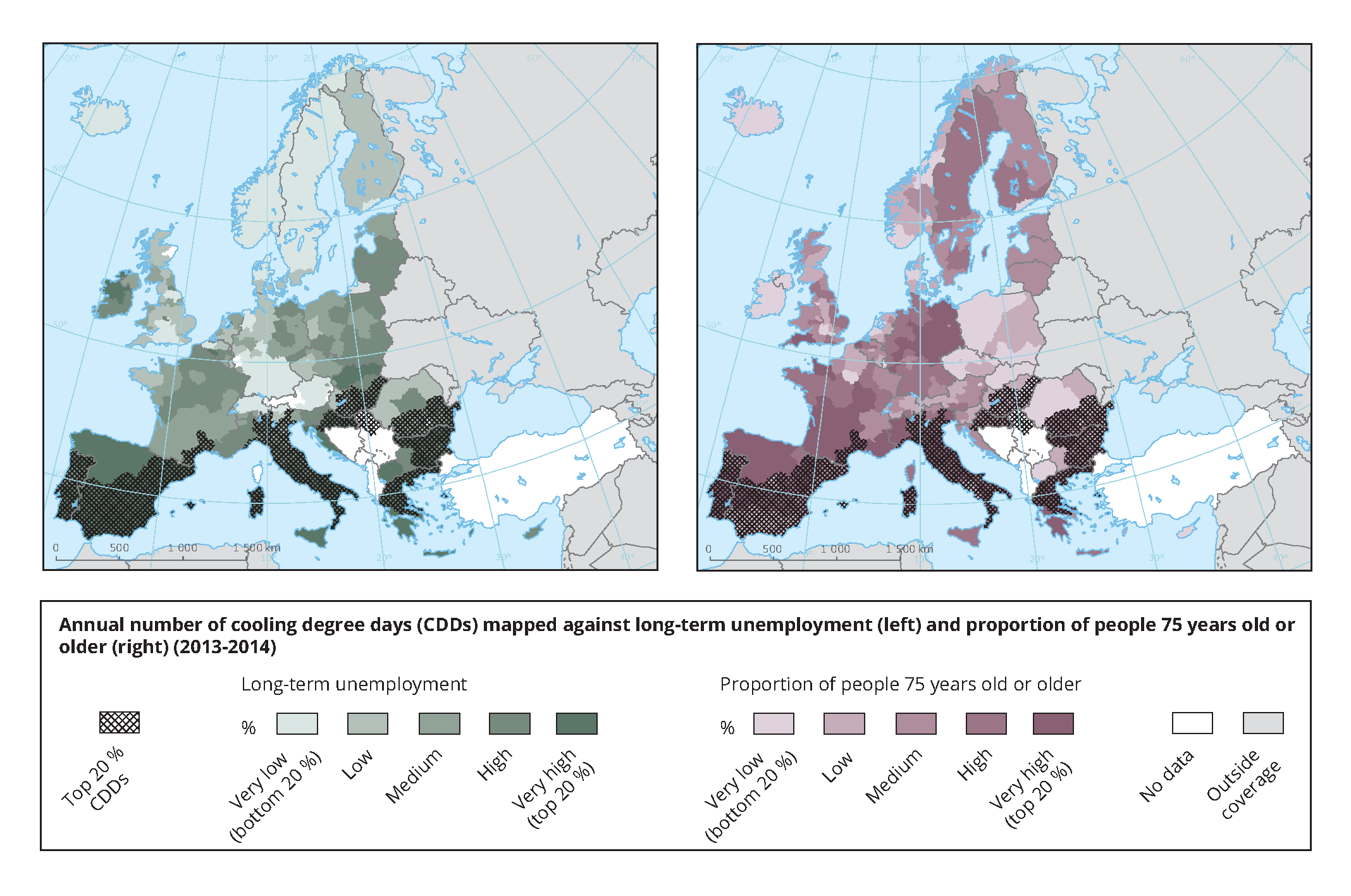The EEA report ‘Unequal exposure and unequal impacts: social vulnerability to air pollution, noise and extreme temperatures in Europe’ draws attention to the close links between social and environmental problems across Europe. The distribution of these environmental threats and the impacts they have on human health closely mirror differences in income, unemployment and education levels across Europe.
While EU policy and legislation over past decades have led to significant improvements in living conditions, both economically and in terms of environmental quality, regional inequalities persist. The report stresses that better alignment of social and environment policies and improved local action are needed to successfully tackle environmental justice issues.
‘The European Commission has consistently emphasised that, on environmental issues, we are a Europe that protects. That principle is best tested by examining how we protect the vulnerable, the weak and the defenceless. The European Environment Agency is to be commended for this report that examines how the poor, the old and the very young are those most at risk from poor air quality, excessive noise and extremes of temperatures. It informs our efforts to make sure that we are a Europe that protects all’, said Karmenu Vella, EU Commissioner for Environment, Maritime Affairs and Fisheries.
‘Despite the very significant success of European policies over the years to improve our quality of life and protect the environment, we know more can be done across the EU to make sure all Europeans, no matter their age, income or education, are well protected from the environmental hazards we face,’ said Hans Bruyninckx, EEA Executive Director.

Note: Exposure is expressed as population-weighted concentrations; mapped for NUTS 3 regions.
Source: Based on ETC/ACM (2018a).
Note: Number of cooling degree days per year is the 1990-2015 average. The long-term unemployment rate and the percentage of people 75 years old or older are classified using quantiles, i.e. five equal intervals. Mapped for NUTS 2 regions.
Source: EEA based on the E-OBS dataset (updated from Haylock et al., 2008) and Eurostat.
Key findings
Air and noise pollution
- Eastern European regions (including Poland, Slovakia, Hungary, Romania and Bulgaria) and regions in southern Europe (including Spain, Portugal, Italy and Greece), where incomes and education are lower and unemployment rates higher than European averages, were more exposed to air pollutants including particulate matter (PM) and ground level ozone (O3).
- Wealthier regions, including large cities, tend to have on average higher levels of nitrogen dioxide (NO2), mostly because of the high concentration of road traffic and economic activities. However, within these regions themselves, it is still the poorer communities that tend to be exposed to higher local levels of NO2.
- Exposure to noise is much more localised than exposure to air pollution and ambient levels vary considerably across short distances. The analysis did find a tentative link between noise levels in cities and lower household incomes, suggesting that cities with poorer populations have higher noise levels.
Extreme temperatures
- Southern and south-eastern European regions are more affected by higher temperatures. Many regions in Bulgaria, Croatia, Greece, Italy, Portugal and Spain are also characterised by lower incomes and education, higher levels of unemployment and larger elderly populations. These socio-demographic factors can reduce individuals’ ability to respond to and avoid heat and thus result in negative health outcomes.
- In parts of Europe a large number of people are unable to keep their homes adequately warm because of poor-quality housing and the price of energy. Illnesses and fatalities associated with exposure to low temperatures continue to occur as a result.
What is being done to tackle the problem?
The European Union (EU) as a whole has made significant progress over past decades in reducing air pollution and Member States have implemented various EU policies to improve climate change adaptation. The EU’s regional policy has proved its effectiveness in helping to address social and economic inequalities. A number of regional and city authorities are also proactive in reducing the impact of the environmental hazards on the most vulnerable members of society:
- Improved spatial planning and road traffic management, such as the introduction of low-emission zones in city centres, are helping to reduce exposure to air pollution and noise in areas where socially vulnerable groups live.
- A ban on certain domestic heating fuels, like coal, also leads to improved air quality in low-income zones. However, it needs to be combined with subsidies for switching to cleaner heating options for low-income households.
- Examples of actions aimed at protecting children from aircraft and road noise include provision of noise barriers and protective structures in outdoor play areas.
- Many national and local authorities have put action plans in place to improve emergency response to help the elderly and other vulnerable groups during heat waves or cold spells. This is often supplemented by community or voluntary sector initiatives.
- Climate change adaptation helps to prepare for increasingly frequent and extreme heatwaves. In particular, providing more green space helps to cool down city centres whilst bringing health and quality of life benefits to urban residents.
Background on the assessment
Pollution and other environmental hazards pose health risks to everyone, but have greater impacts on some people due to their age or state of health. Individuals’ ability to avoid, or cope with these hazards is also influenced by their income, employment status or level of education. The EEA report assesses the links between social and demographic inequalities and exposure to air pollution, noise and extreme temperatures at various scales in Europe.


Document Actions
Share with others